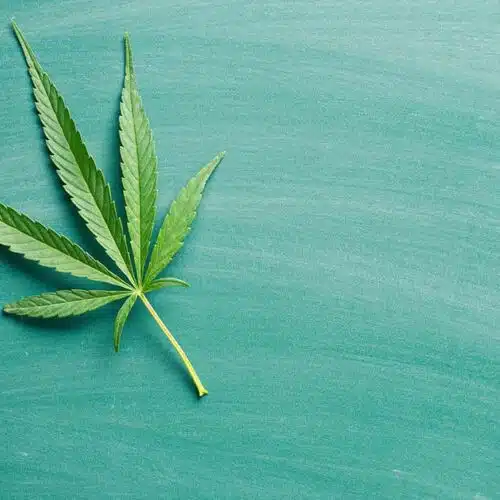In Week 16 of the 2012 NFL season, Calvin Johnson, better known by his Transformers-inspired nickname “Megatron,” broke the all-time single season receiving yards record. It was one of a number of otherworldly statistics that the future hall of famer put up in his illustrious 9 year career. Johnson retired following the 2016 season, a year in which he had over 1,000 yards and 9 touchdowns. He cited the mounting number of severe injuries caused by a life of football as his reason for retirement. Johnson told ESPN in 2016, “Look, man. I got stuff that’s going to hurt for the rest of my life. I got a finger that’s literally bone-on-bone.”
The NFL’s Own Opioid Crisis
Calvin Johnson’s abilities on the football field were unmatched among NFL players. His pain and number of injuries were not. The average length of an NFL career is a measly 3.3 years and the players who are “lucky” enough to have a long and statistically successful career have scars that will last a lifetime. No matter how many injuries a player sustains, it is their job to stay on the field at all costs. To do so, many players are forced to play through excruciating pain. Often, the only way players are able to fight through the pain and get back on the field is to use high-strength painkillers.
The use of painkillers is the NFL’s dirty not-so-secret. According to a survey conducted by the Washington State University School of Medicine in St. Louis, “51% of retired NFL players say they had used opioids during their playing career.” The survey also found, “71% of those players met the criteria for misuse of opioids.”
Even in a country that is in the midst of an opioid crisis, NFL players are 4 times more likely to use opioids than the general population. The number of players who have abused opioids is frightening but what is even more concerning is the NFL’s inaction on the issue. The NFL has not taken any major steps toward combating the overprescription and overuse of opioids by its players. The biggest reason players use cannabis is to treat the physical pain they suffer on the field. While the severity of bodily injuries cannot be denied, it’s the hidden injuries that are the most concerning and need to be addressed.
Hidden Trauma
Brain injuries are as much a part of football as scoring touchdowns. In fact, throughout their careers most professional football players will suffer more diagnosed concussions than they will score touchdowns. The previously outlined Washington State University School of Medicine in St. Louis survey found that the average number of concussions suffered by retired NFL players was nine. The survey revealed that some players said that they had up to 200. Of the survey’s respondents, 49% had been diagnosed with concussions by a medical professional and another 81% believe they had suffered concussions that went undiagnosed. The concussion crisis has already cost the NFL over $680,000,000 in monetary settlements and the lawsuits will likely continue to add up.
Cannabis, and specifically cannabidiol (CBD) has neuroprotective qualities that make it a promising substance for NFL players. In one study, CBD was found to reduce brain damage in mice who had suffered strokes. While the difference in damage done by a football-related concussion and stroke is vast, the study does establish a benchmark for using CBD as a neuroprotectant. The NFL should be doing everything in its power to study and understand the neuroprotective qualities of cannabis. If cannabis has even the slightest potential to prevent brain trauma in NFL players then it is worth studying. Instead, the NFL allocates copious resources towards disciplining players who self-medicate with cannabis.
Their Way or The Highway
While the NFL is notoriously mum on its reasoning for suspending a player, there were at least 9 players suspended for marijuana-related incidents in 2019 alone. A number of other players were suspended for “substance abuse” but no specific reason was given for their suspensions. At the same time players are misusing opioids and retiring early, the NFL is suspending players for using cannabis.
There are a myriad of examples of the NFL’s suspension hypocrisy. Raiders Guard Richie Incognito was suspended only 2 games after “threatening to shoot employees at a funeral home” when they wouldn’t let him remove and keep the head of his deceased father. Meanwhile, Cowboys defensive-end Randy Gregory is suspended indefinitely for failing multiple drug tests for cannabis. Gregory has never been in trouble with the law and will have to appeal his suspension to have any shot at playing again while Incognito is now starting for the Oakland Raiders. Comparing the suspensions of Incognito and Gregory clearly outlines the NFL’s blatant hypocrisy when it comes to disciplining its players. Many players use cannabis, yet only some are unlucky and get caught.
NFL Cannabis Use Is Not Rare
The reason many players feel the need to risk their careers and use cannabis is the same reason why many of them are prescribed opioids. It is the same reason future hall of famers like Calvin Johnson are retiring in the prime of their career. The severity and frequency of injuries in the NFL makes the consumption of painkillers a necessity for almost every player. Some players would just rather use cannabis than dangerous opioids. Calvin Johnson recently revealed that in order to keep himself on the field and to avoid dangerous opioids, he smoked cannabis after every NFL game. In an interview with Sports Illustrated he said, “You really could go in the training room and get what you wanted. I can get Vicodin, I can get Oxy. It was too available. And I did not like the way that made me feel. I had my preferred choice of medicine. Cannabis.”
The NFL continues to make billions of dollars while it’s players are retiring early and with severe injuries that will change the way they live their lives. When these players find a safer plant-based alternative to opioids, the NFL suspends them without pay. While the War on Drugs in the United States may be subsiding, the NFL’s war on cannabis has not. For its players sake, the league needs to look itself in the mirror and reevaluate. It needs to do whatever possible to protect the health and safety of its players.


